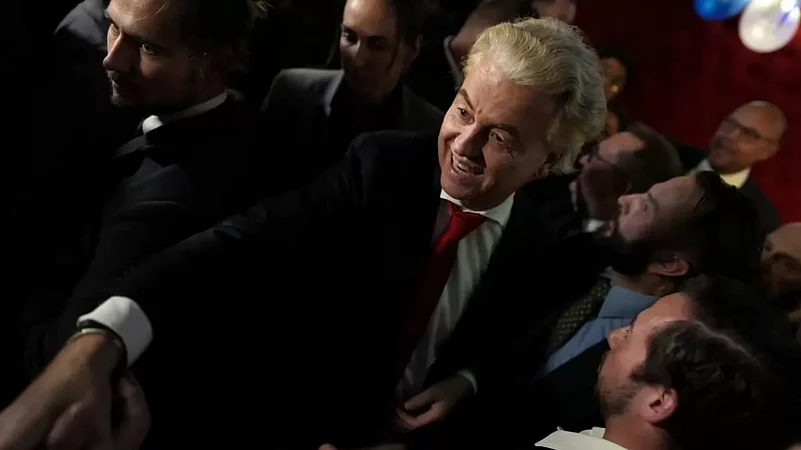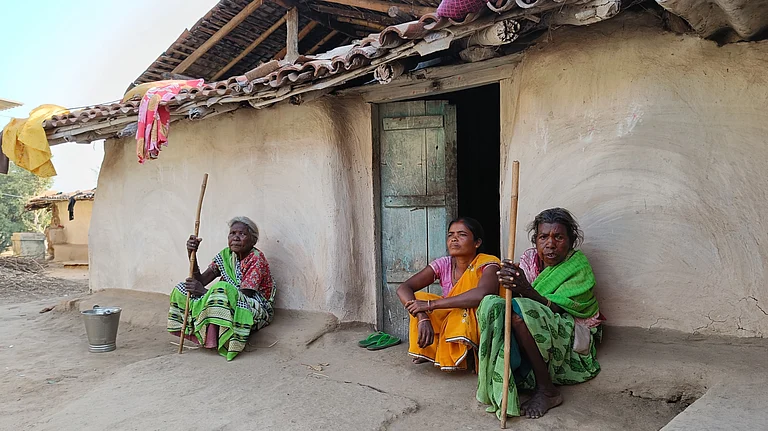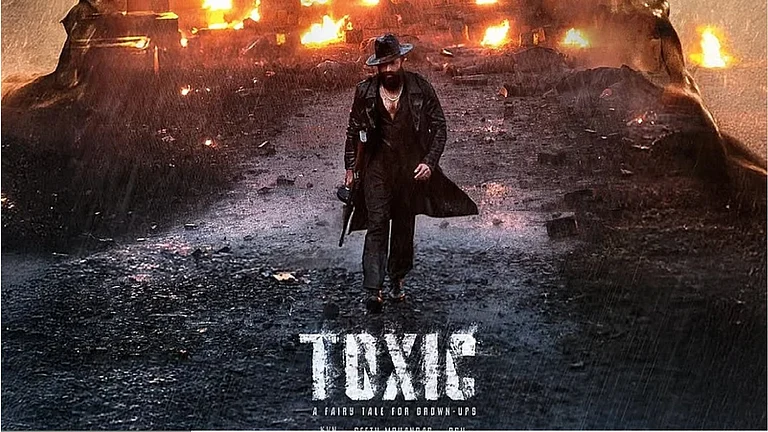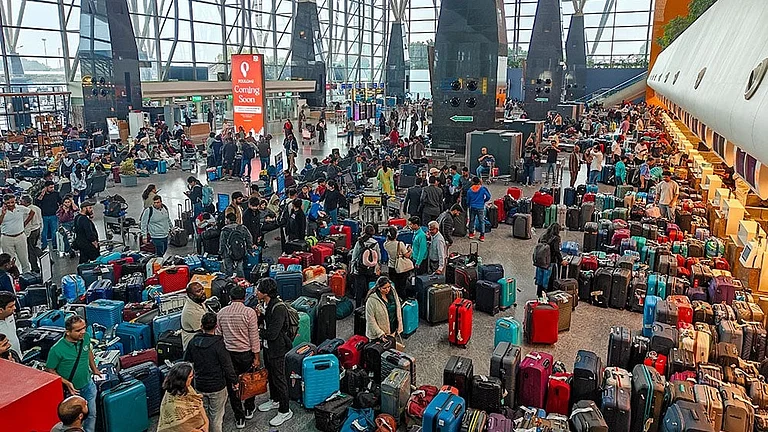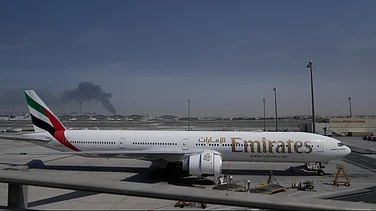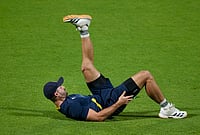Dutch far-right leader Geert Wilders' unexpected win in Wednesday's elections has surprised not only the entire world but also himself.
The 60-year-old politician, on track to be the next Prime Minister of the Netherlands, took to X on Thursday, sharing a video of himself in joyous disbelief at having secured 35 seats in the parliament.
The leader of the Freedom Party, often referred to as the Dutch Trump for both his striking resemblance and similar ideologies, has just orchestrated one of the biggest upsets in European politics with his landslide victory.
Who is Geert Wilders
Geert Wilders is a right-wing populist leader, widely recognised for his controversial anti-immigration and anti-islamic ideologies.
Although he has been a fixture in politics for over two decades, this is the first time he will not be a part of the opposition.
Born in the southeastern Netherlands, Wilders attended secondary school in Venlo and took a series of law classes through Open University. From 1981 to 1983 he lived in Israel and traveled extensively throughout the Middle East.
Wilders made his debut in politics as a member of the liberal People’s Party for Freedom and Democracy in 1997. The following year he was elected to parliament.
Wilders was on the sidelines for much of his early career and only began to grow in popularity when he started voicing his anti-islamic views.
In 2004 he founded his own party - Freedom party (PVV).
Anti-islamic ideology
Geert Wilders’ has not kept his aversion to Islam a secret. He has often linked Muslim immigration with terrorism and called for a ban on the Quran and mosques. In 2007 he compared the Quran to Hitler’s autobiography Mein Kampf.
He says his condemnation for the religion rose when filmmaker Theo van Gogh was killed in 2004 for his film, Submission, that depicted Islam as a religion that encouraged violence against women.
He has often criticised Islam as “a retarded culture” and a “backward religion” and referred to Muslims as “second-class citizens”.
He has received several death threats for his Islamophobic views and has hence remained under police security since 2004.
Wilders has also proposed a ban on headscarves from government buildings should he come to power.
Last year, Wilders backed BJP member Nupur Sharma on her offensive remarks on Prophet Mohammad.
In his tweet, Wilders wrote, “Nupur Sharma is a hero who spoke nothing but the truth. The whole world should be proud of her. She deserves the Nobel Prize. And India is a Hindu nation, the Indian government is obliged to strongly defend Hindus against Islamic hate and violence.”
Anti-immigration
In his winning speech, Wilders said, “the hope is that people get their country back, that we make sure that Netherlands is for the Dutch again. That we limit the asylum tsunami and migration.”
The populist leader has openly expressed his views for shutting the borders for immigrants, especially those from “Islamic countries.”
The Dutch politician was convicted of inciting discrimination through a speech he delivered following local elections in March 2014.
After his party narrowly missed becoming the largest group on The Hague's city council, Wilders asked a roomful of supporters about their preference for "more or fewer Moroccans" in the country. In response to the crowd's shouts for "Fewer!" he remarked, "Well, we'll take care of that."
Anti-EU stance
Wilders’ Anti-EU rhetoric is another element at the centre of his agenda.
Wilders says he will be calling for a referendum on whether Netherlands should leave the European Union. He advocates for the Netherlands’ exit from the European Union, a move he terms “Nexit”.
A Wilders victory holds implications for Europe, given the Netherlands' status as one of the founding members of the European Union and raises questions over its commitments to the bloc.
The populist party now moves to form a coalition with at least two other parties to secure a majority and appoint a prime minister.


